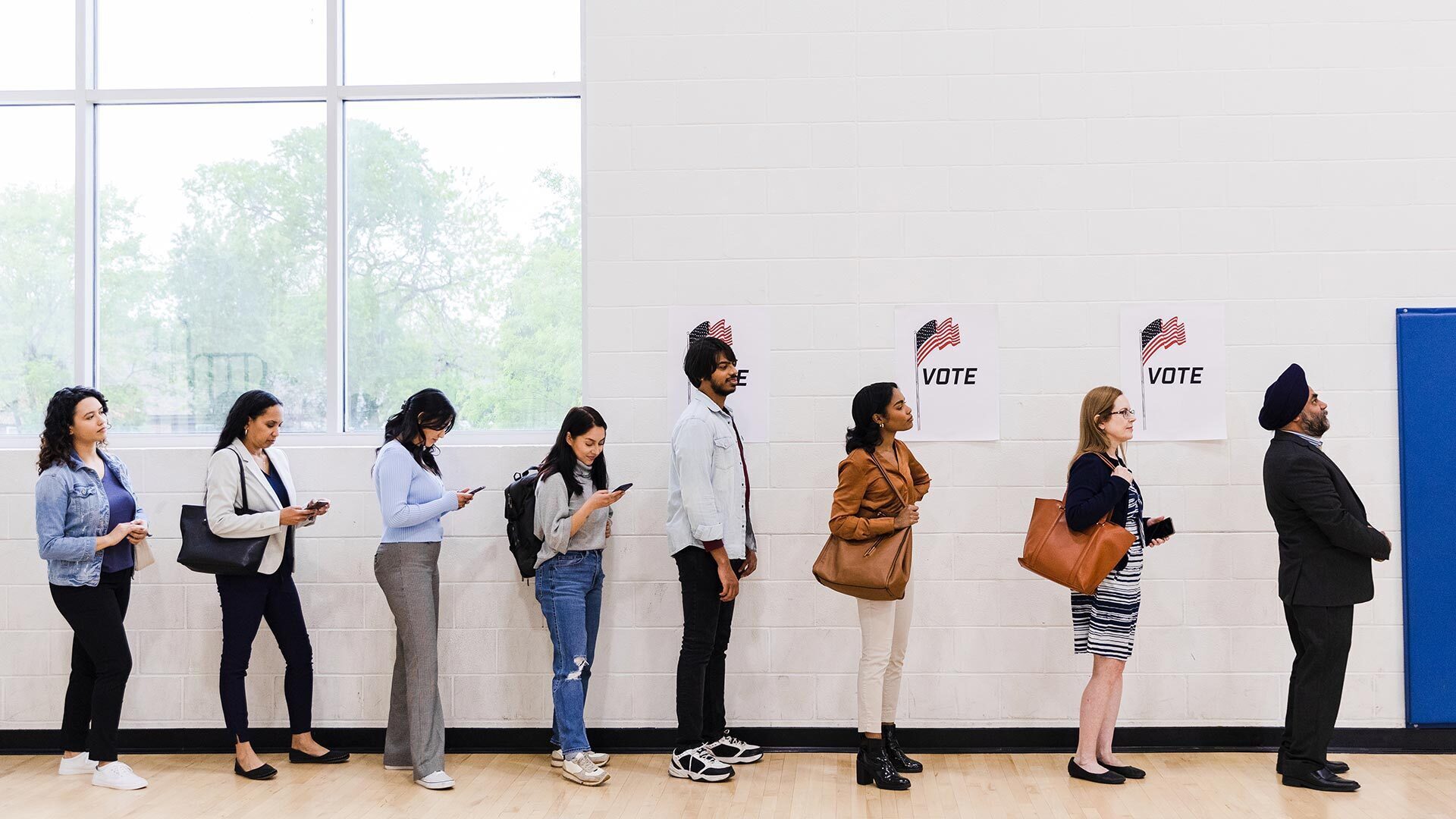- March 26, 2024
- By Rachael Grahame ’17
A wave of state voter-identification laws threatens to prevent a massive number of Americans from casting their ballot in the 2024 presidential election, according to a recent University of Maryland-led survey.
The first public survey in nearly 20 years to focus on who has and doesn’t have various types of government-issued photo IDs found that 20.76 million Americans of voting age (18 and up) lack a current driver’s license, and 28.6 million have one that doesn’t list both their current address and current name.
UMD’s Center for Democracy and Civic Engagement (CDCE), in collaboration with VoteRiders, Public Wise and the Brennan Center for Justice, reported that more than one in 10 Black (18%), Hispanic (15%) and Asian/Pacific Islander (13%) respondents were among those who said that they didn’t have a driver’s license, a reality for just 5% of white respondents.
More than one-quarter of Black (28%) and Hispanic (27%) survey respondents said that they have a driver’s license, but it doesn’t have their current name and/or address on it, compared to 21% of Asian/Pacific Islander respondents and 18% of white respondents. The problem is especially common among younger Americans, the researchers found, with 41% of those ages 18-24 and 38% of those ages 25-29 indicating this.
“American communities can’t address ID-based disenfranchisement unless they know who doesn’t have acceptable ID and who might be kept away from the polls because they think they don’t have the ID they need to vote in their state,” said CDCE Chief Strategist Sam Novey. “As a result of this collaboration and this study, we now know more than ever before about the extent of the threat that ID-based disenfranchisement poses to American democracy and the politically viable options that communities have for immediately countering this growing threat.”
The Brennan Center has counted 29 states that enacted 94 voting restrictions since 2013, when the U.S. Supreme Court knocked down a provision of the landmark 1965 Voting Rights Act that required states with a history of voter discrimination to get federal approval for new voting-access laws. Today, 38 states have some sort of voter ID law in place, including 17 that created new voter ID laws, or made existing ones stricter, since the 2020 presidential elections.
Amid so many changes, large swaths of the U.S. citizens aren’t aware of their state’s voter ID laws for in-person or mail-in ballots, the survey found. Fifty-five percent of respondents said they didn’t know that they lived in a state where a photo ID was required to vote; conversely, more than one-third of survey respondents said they didn’t know that they lived in a state where a photo ID was not required to vote.
The survey was conducted Sept. 12-Oct. 4, 2023, among a nationally representative sample of 2,386 U.S. adult citizens. It built on an April 2023 analysis from CDCE and VoteRiders on the millions of voting-age Americans without a current, government-issued photo ID, based on the American National Election Studies’ 2020 Time-Series Study.
Jillian Rothschild, CDCE fellow, said the survey, along with other voter ID research, challenges “the narrative that Americans support ID-based disenfranchisement.”
“While the public consistently shows strong support for citizens showing photo ID to vote, the same people support a range of laws that make voting easier,” she said. “In our survey, we found tremendous support across party lines for requiring high schools to provide official state ID cards for students without a driver's license."
Overall, 81% of respondents said they would support such a requirement, including 78% of Republicans, 84% of Democrats, and 81% of independents.
The researchers also found that independent voters (18%) lack a driver's license at double the rate of Democrats (9%) and triple the rate of Republicans (6%). In addition, 31% of independent respondents lacked an ID with a current name and address compared to 23% Democrats and 16% of Republicans.
“This new research clearly debunks the notion that everyone has an ID,” said CDCE Director Michael Hanmer, a government and politics professor. “While it is true that people of color, young people and Democrats are more likely to lack a driver’s license, other groups are not immune: Nearly 16 million Republicans and over 10 million independents do not have a license. As we head to the 2024 presidential election, efforts to ensure everyone who wants to vote has the ID they need should be a priority.”
